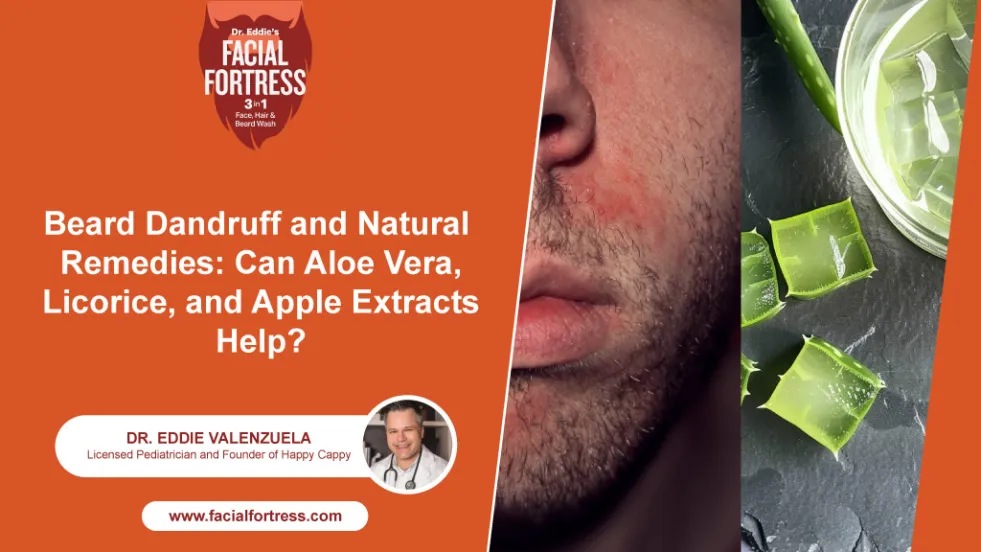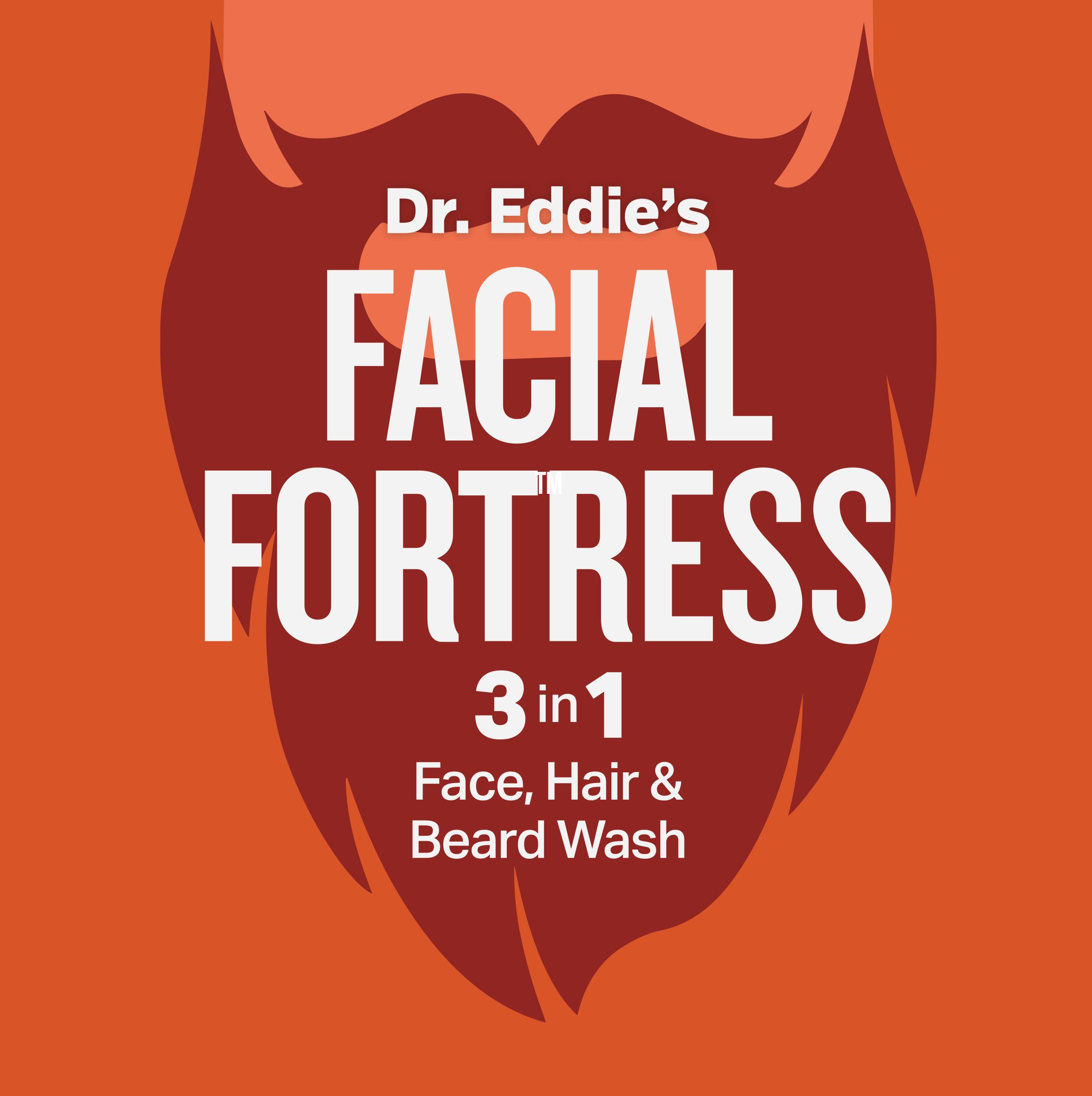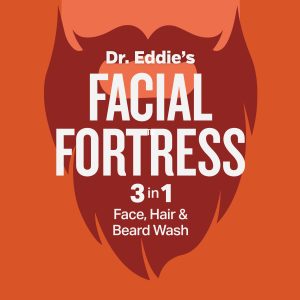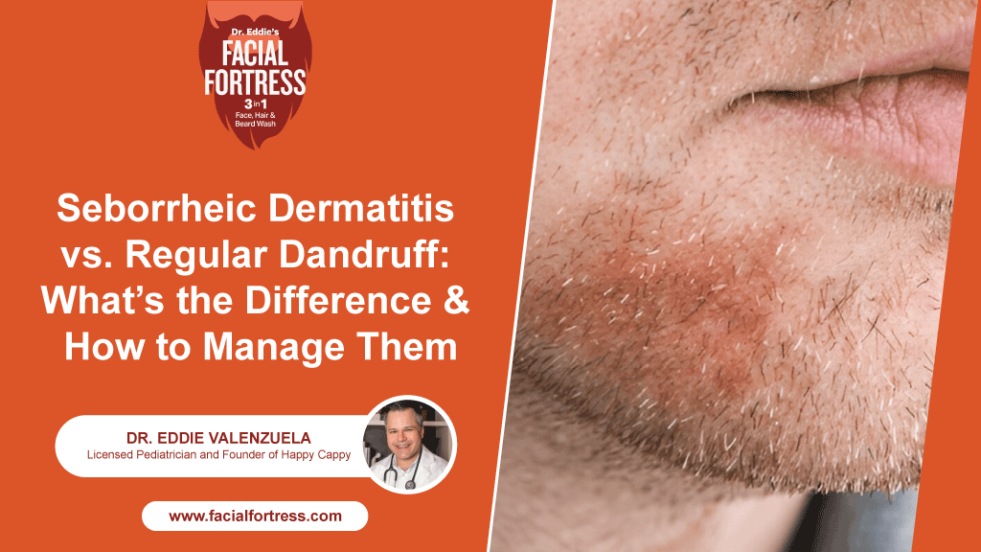Beard Dandruff and Natural Remedies: Can Aloe Vera, Licorice, and Apple Extracts Help

If you are looking for how to treat beard dandruff, there are only three ways that can possibly help you manage its symptoms: anti-dandruff beard shampoos, prescription medications, and natural remedies.
When you search online for beard dandruff home remedies, you will find many, from coconut oil and aloe vera to lemon juice and apple cider vinegar. But are these natural remedies for dandruff safe to use? Can they do any good for your dandruff?
Don’t worry, we are here to help you. This blog will give you a clear understanding of whether common natural remedies like aloe vera, licorice root, and apple fruit extract can help in treating dandruff on the beard.
Understanding Beard Dandruff?
Beard dandruff, or beardruff, is simply a milder form of seborrheic dermatitis that appears on your beard, and there is nothing special or out of the box in this case. It looks pretty much like the dandruff you experience on your scalp.
Some of the common symptoms of beard dandruff are
- White or yellowish flakes
- Inflammation
- Redness under the beard
- Itchy skin
- Greasy patches
- Irritation.
Now you might be wondering, “What causes beard dandruff?” It is caused by the same factors that lead to the appearance of dandruff flakes on the scalp.
- Presence of excess sebum
- Overgrowth of Malassezia yeast
- Skin reaction to oleic acid
The only difference between scalp and beard dandruff is that facial dandruff can be more bothersome and embarrassing.
Natural Remedies for Dandruff in Beard
Natural Remedies for Dandruff in the Beard
When you search online or ask friends for beard dandruff solutions, you’ll often hear suggestions for “natural remedies.” Many people assume natural options are safer because they don’t contain synthetic ingredients. Some of the most commonly suggested natural ingredients include:
- Apple fruit extract
- Licorice root extract
- Aloe vera
- Apple cider vinegar
- Coconut oil
- Tea tree oil
While many of these ingredients have skin-soothing, hydrating, or calming properties, it’s important to understand their limitations. These natural remedies may help the skin feel more comfortable, but they do not address the root cause of beard dandruff, which is linked to an overgrowth of Malassezia yeast in the hair-bearing areas of the face.
Additionally, certain natural ingredients (especially oils, acidic solutions, or potent botanicals) can trigger irritation or allergic reactions in some individuals, which may actually make beard dandruff symptoms appear worse.
Natural ingredients can certainly play a supportive role in a skincare routine, but they cannot replace medicated formulas designed to control dandruff-related flaking and irritation.
What Science says About Natural Remedies
There’s a lot of misinformation online about natural remedies for dandruff, so here’s a science-based breakdown of what these ingredients can and cannot do.
Apple Fruit Extract
Research suggests apple extract may support hair softness, conditioning, and keratin quality, but there is no evidence showing it can reduce dandruff or impact Malassezia. It can, however, help improve the feel and appearance of the skin and beard.
Licorice Root Extract
Licorice root extract contains compounds that may help the skin appear calmer and less visibly irritated. A few preliminary studies highlight potential anti-Malassezia activity, but these findings are not strong enough to support its use as a standalone dandruff treatment.
In skincare products, licorice root extract is best viewed as a supportive, soothing ingredient, not a medicated active.
Aloe Vera
Aloe vera is well-known for its soothing and hydrating qualities. It may help improve the look of flakiness, dryness, or visible irritation—especially in sensitive skin. However, there is no strong clinical evidence showing that aloe vera treats the underlying yeast activity that drives dandruff or seborrheic dermatitis.
Coconut Oil
While coconut oil can moisturize and soften the skin, it is not recommended for dandruff. Malassezia yeast thrives in oily environments, which means applying coconut oil can actually worsen flaking and irritation.
Summary
Natural ingredients like aloe, licorice, and apple extract may help the skin feel more soothed, conditioned, and hydrated, but they cannot replace medicated ingredients that target the actual cause of beard dandruff.
They work best when used to complement, not replace, clinically proven OTC dandruff actives such as pyrithione zinc.
How to Get Rid of Beard Dandruff?
Since natural remedies cannot address the root cause of beard dandruff, the most effective option is to use a medicated anti-dandruff wash–one that contains an FDA-approved active ingredient specifically formulated to help control flaking and scaling.
However, many anti-dandruff shampoos on the market are designed for the scalp, not the face. These formulas often contain harsh fragrances or strong surfactants that can irritate sensitive facial skin.
So what’s the best option for the beard area?
Anti Dandruff Shampoo for Beards
A Better Solution: Facial Fortress Medicated Face, Body & Beard Wash
The Facial Fortress 3-in-1 Medicated Wash, created by Dr. Eddie, is designed specifically for the unique needs of facial skin. It can be used on the beard, face, and scalp to help control flaking and visible irritation associated with dandruff and seborrheic dermatitis.
Why This Formula Stands Out
This dermatologist-tested wash is:
- Fragrance-free
- Paraben-free
- Sulfate-free
- Dye-free
- Sensitive-skin friendly
It also includes naturally derived extracts such as licorice root extract and apple fruit extract that help soothe the skin and support a more comfortable beard area.
Powered by an FDA-Approved Active Ingredient
0.95% Pyrithione Zinc (OTC Active)
This clinically supported ingredient helps:
- Control flaking and scaling associated with dandruff
- Reduce visible irritation linked to seborrheic dermatitis
- Address Malassezia activity, one of the main contributors to dandruff
Together, these benefits make Facial Fortress a safe, effective, doctor-developed option for managing beard dandruff.
How Often Should You Use It?
Use Facial Fortress:
- Daily, for moderate to persistent dandruff
Or - 2–3 times per week, for maintenance or milder symptoms
Regular use helps keep flaking, dryness, and visible irritation under control, leaving your beard looking cleaner, softer, and more comfortable.
Why a Medicated Beard Dandruff Shampoo is a Safer Option
Unlike DIY treatments or raw natural ingredients, OTC medicated products are regulated, tested, and specifically formulated to help control the flaking and visible irritation associated with dandruff and seborrheic dermatitis. They undergo safety reviews, stability testing, and must meet strict guidelines for how they’re used.
A medicated wash:
- Uses an FDA-approved active ingredient to help control dandruff-related flaking and scaling
- Is tested for skin compatibility, especially on sensitive facial and beard areas
- Is less likely to cause unexpected irritation compared to unrefined natural ingredients
- Includes soothing, supportive extracts—such as licorice root and apple fruit extract—processed and purified for safety
- Is developed under strict quality and manufacturing standards, unlike many home remedies
For these reasons, skincare experts recommend choosing a doctor-developed, medicated beard wash instead of relying on DIY natural remedies. It’s a safer, more reliable, and more effective option for keeping beard dandruff under control.
How to Prevent Beard Dandruff?

While medicated washes help control beard dandruff symptoms, certain habits can support healthier-looking skin and make flare-ups less likely. These simple practices can enhance your results and keep your beard area more comfortable over time.
1. Grooming and Beard Hygiene
Good grooming habits should be part of your regular routine not just something you do during a flare-up. Keeping the beard clean helps reduce buildup from oil, sweat, and environmental debris.
Tips:
- Trim and comb regularly to reduce tangles and buildup
- Use a gentle beard wash a few times per week
- Comb the beard daily to lift flakes and help products reach the skin underneath
Detangling and combing allow your medicated or moisturizing products to reach the skin surface more effectively.
2. Diet and Hydration
Diet doesn’t “cause” dandruff, but it can influence how your skin responds especially in people prone to seborrheic dermatitis.
Helpful tips:
- Include healthy fats (omega-3s) from foods like salmon, walnuts, flaxseed, and chia
- Stay hydrated, as dehydration can worsen dryness
- Limit high-sugar and heavily processed foods, which some people find can aggravate skin issues
A balanced diet supports overall skin health and may help reduce the severity of flare-ups.
3. Stress Management
Stress is known to affect overall skin health and may contribute to seborrheic dermatitis flare-ups. Managing stress can support a healthier skin environment.
Consider:
- Regular exercise
- Consistent sleep
- Mindfulness practices such as meditation or deep breathing
- Spending time with friends, family, or engaging in meaningful activities
If stress feels overwhelming, consulting a healthcare professional can be beneficial.
Conclusion
Many people consider using natural remedies, like licorice root, apple fruit extract, aloe vera, coconut oil, lemon juice, or apple cider vinegar, for beard dandruff because they believe these options are gentler or “chemical-free.” But while these ingredients may help soothe the skin or provide temporary comfort, they do not address the underlying cause of beard dandruff, which is linked to the activity of Malassezia yeast.
In some cases, DIY natural remedies can even trigger irritation or allergic reactions, making flaking and redness worse.
For real results, the most effective option is a medicated beard wash containing an FDA-approved active ingredient, such as 0.95% pyrithione zinc, which helps control the flaking and visible irritation associated with dandruff and seborrheic dermatitis.
Using a medicated product consistently, daily or 2–3 times per week, depending on your needs, combined with good grooming habits, a balanced diet, and proper beard hygiene, can help keep beard dandruff under control and support healthier-looking skin.
If you’re looking for a gentle yet effective solution, Facial Fortress Medicated Face, Body & Beard Wash offers a doctor-developed, sensitive-skin–friendly formula designed specifically for the beard area.
- Oily skin and beard dandruff: why over‑washing can make your beard flakier - December 23, 2025
- Why Your Beard Itches and Flakes: Seborrheic Dermatitis or Product Reaction? - December 23, 2025
- Seborrheic Dermatitis vs. Regular Dandruff: What’s the Difference and How to Manage Them - November 17, 2025
Recent Post
Frequently Asked Questions
What oil is good for beard dandruff?
How do you get rid of dandruff on your beard?
The most effective approach is to use a medicated anti-dandruff wash formulated for the beard and face. Products containing pyrithione zinc (0.95%) help control flaking and visible irritation associated with dandruff and seborrheic dermatitis.
Facial Fortress 3-in-1 Medicated Wash is designed specifically for beard skin and can be used daily or several times a week.
Is beard dandruff a fungus?
Can aloe vera replace anti-dandruff shampoo?
Is licorice root extract safe for sensitive skin?
Can I use aloe vera and a medicated shampoo together?
- Oily skin and beard dandruff: why over‑washing can make your beard flakier - December 23, 2025
- Why Your Beard Itches and Flakes: Seborrheic Dermatitis or Product Reaction? - December 23, 2025
- Seborrheic Dermatitis vs. Regular Dandruff: What’s the Difference and How to Manage Them - November 17, 2025




